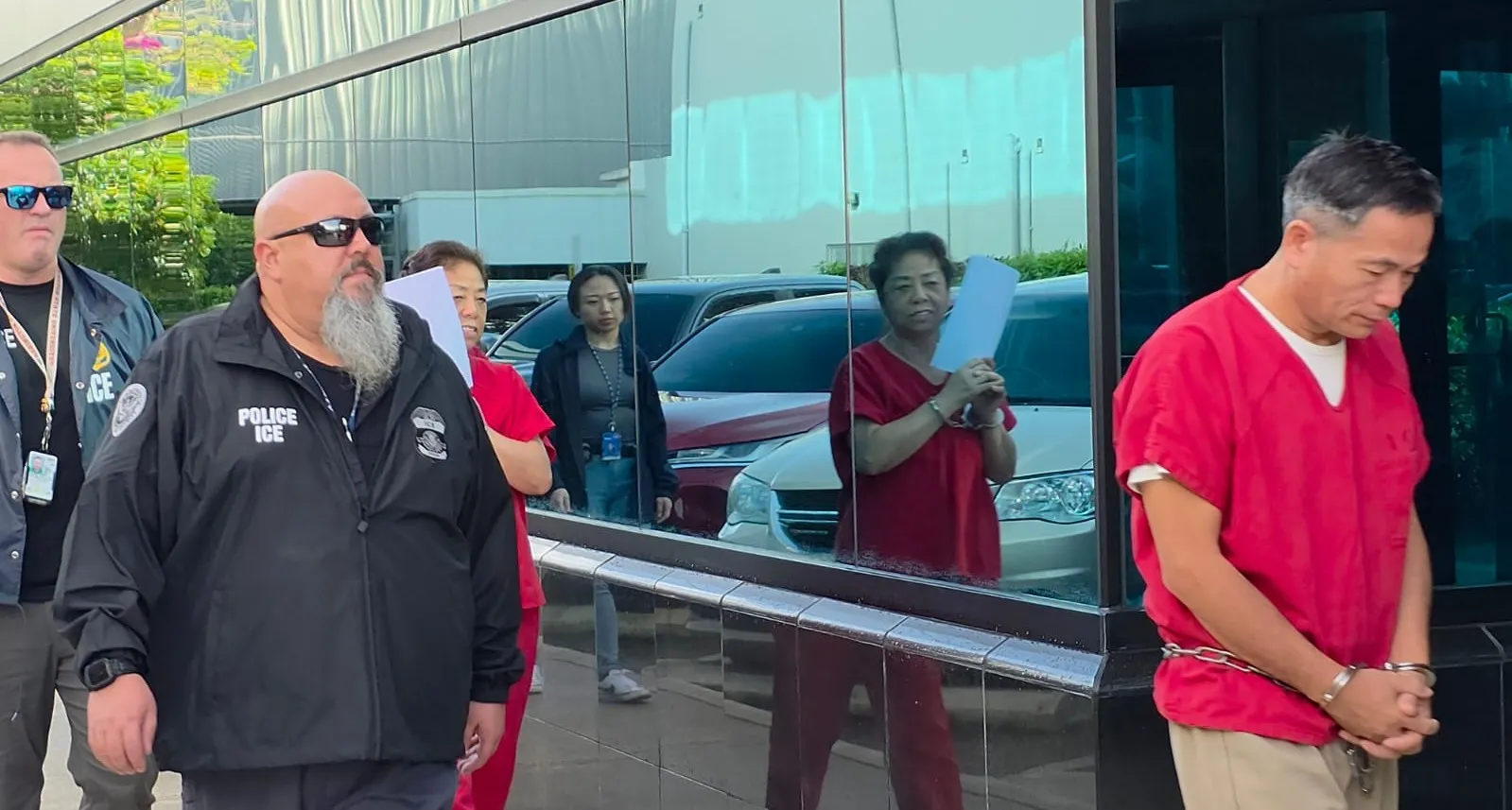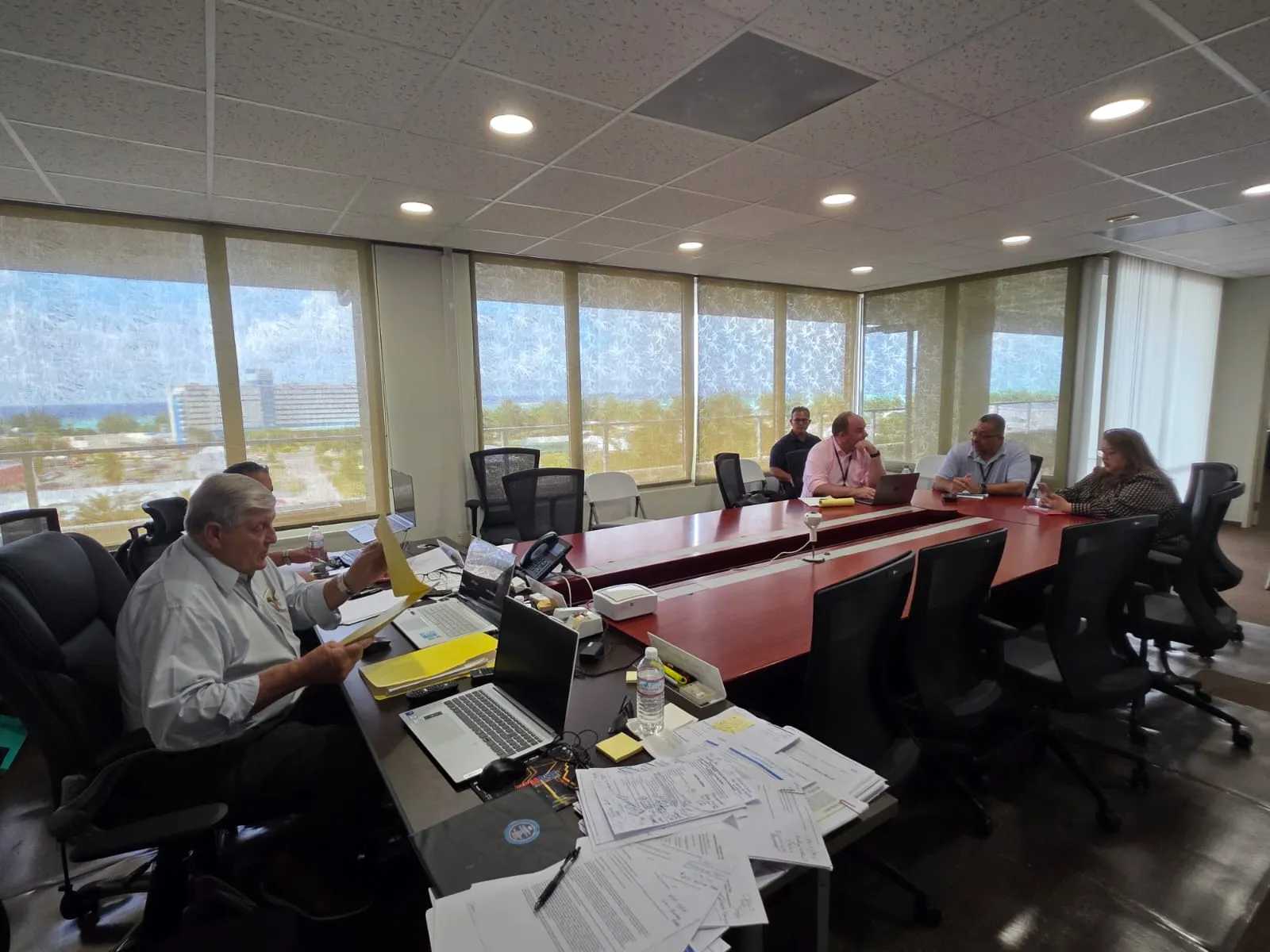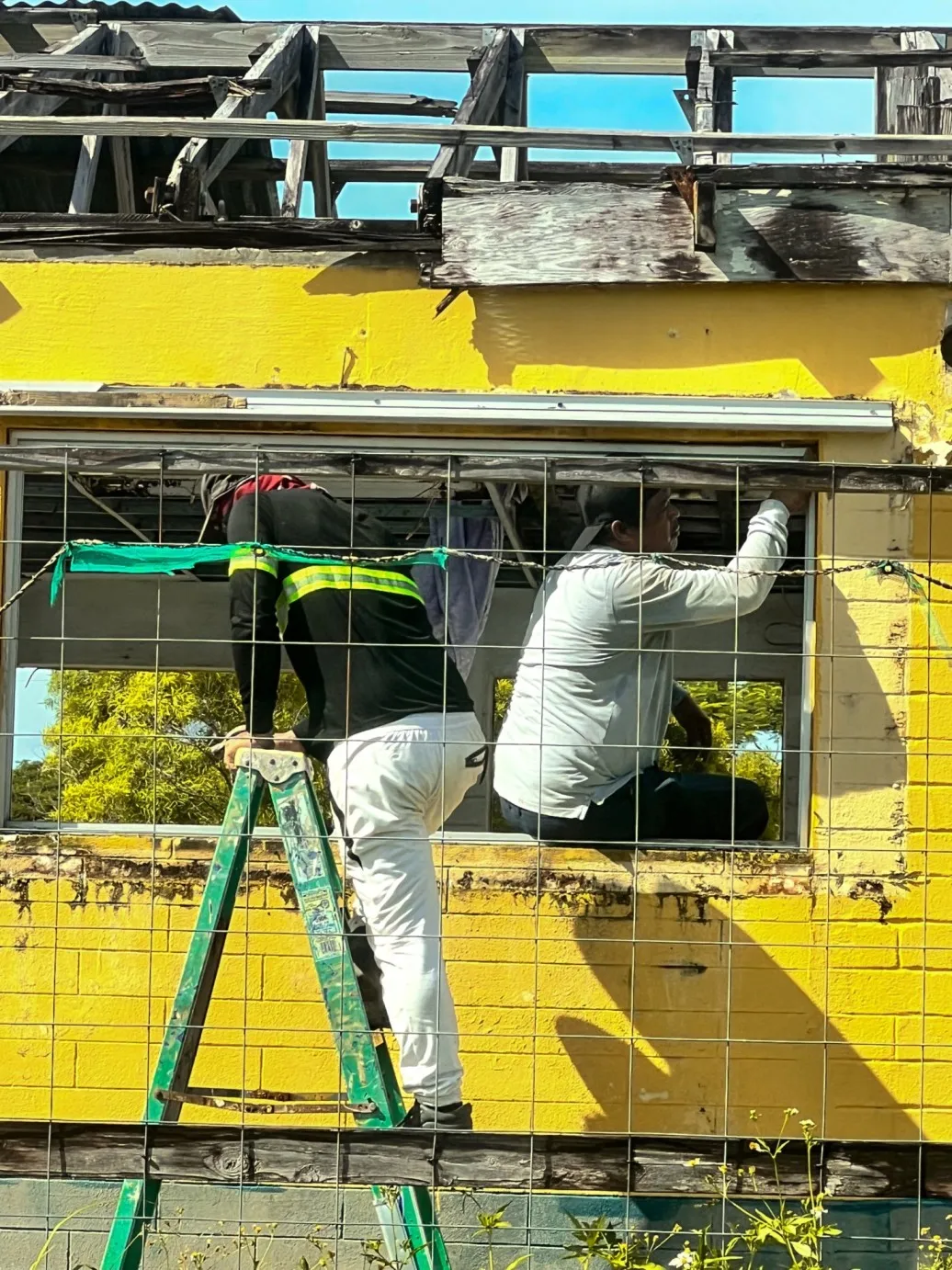HAGÅTÑA (The Guam Daily Post) — Arguments are continuing in the Superior Court of Guam on a motion to disqualify the Office of the Attorney General from prosecuting two Department of Public Health and Social Services employees on corruption charges.
On Tuesday, an evidentiary hearing requested by former DPHSS Director Arthur San Agustin and current DPHSS chief environmental health officer Masatomo “Tom” Nadeau began with the purpose of disqualifying the AG’s office from prosecuting the two Public Health officials because of a conflict of interest.
San Agustin and Nadeau face corruption charges alleging sanitary permits for Guam Department of Education schools were approved without performing legally required inspections. However, San Agustin and Nadeau’s attorneys, Joaquin “Jay” Arriola and Patrick Civille, respectively, argued there is a conflict of interest in the prosecution considering the two officials were given legal advice by the Office of the Attorney General before being indicted.
Although the hearing began Tuesday morning, Superior Court Judge John C. Terlaje ordered it would be under seal and not open to the public.
Arriola told The Guam Daily Post on Thursday that since the hearing is under seal, he could not state what was said in the hearing but was able to confirm who has testified so far.
The witnesses set to testify about whether there was a conflict wall in place between the Prosecution Division and Civil Division of the AG’s Office during the investigation were Attorney General Douglas Moylan, former OAG attorneys Jessica Toft and Sandra Miller, Chief Deputy Attorney General Joseph Guthrie, OAG investigator Maria Apuron and acting Chief Prosecutor Gloria Rudolph.
As the hearing was scheduled to resume on Friday after previous sessions on Tuesday and Wednesday, Arriola confirmed that Guthrie, Apuron and Rudolph had yet to testify.
Arriola also added that, every day since the hearing began, he has moved to unseal the case.
“We’ve not been able to succeed in that yet,” Arriola said.
Arriola confirmed with the Post the Friday portion of the hearing concluded in the afternoon and was set to resume Monday.
Under seal
Despite the hearing being under seal, Arriola said he hopes the records – such as the testimonies given – will be unsealed after the hearing is concluded.
“We believe and trust that after the hearing is concluded the court may likely unseal it and we’re hopeful that he does that so that the people will be able to see what’s been said behind closed doors,” said Arriola, who argued it’s in the public’s interest for the case to be unsealed.
“Of course, in the public interest, the interest of transparency and in the interest of making sure our attorney general is an ethical prosecutor, and that his office is run in an ethically responsible manner,” Arriola added.
Withdrawal
Prior to the evidentiary hearing, Moylan, on Feb. 28, issued a letter indicating he would temporarily withdraw representation from government entities currently under investigation by the Government Corruption Division at the AG’s office.
The initial number of entities Moylan indicated was 21, but is now 22. Some of the entities have their own lawyers, but others relied on the OAG for legal guidance. There were also concerns over the impact the decision would have on critical government procurements and services requiring the AG’s review and approval. Moylan has said that his office has developed workarounds to ensure documents continue to be processed.
In his letter, Moylan said although he believes there is no conflict, his decision stemmed from conflict-of-interest arguments made in the DPHSS case, along with another corruption case involving the Guam Regional Transit Authority. According to Post files, an evidentiary hearing was held for the GRTA case where similar arguments were made for there being a conflict of interest. The GRTA case is currently under advisement.
The 37th Guam Legislature convened an emergency session in early March, partly to address the AG’s withdrawal. After that failed to result in the passage of any measures introduced to remedy the situation, the governor then called the Legislature into special session twice. But those special sessions also led to no bills passing.
Moylan and his team appeared to address questions made by lawmakers during the emergency session.
In light of Moylan testifying publicly before the Legislature about the corruption cases and reasons for withdrawing, Arriola expressed disappointment in the sealing of the evidentiary hearing.
“I’m very disappointed that the courts have sealed it. Again, I think eventually it will be unsealed, … perhaps the court is doing it out of the abundance of caution,” Arriola said. “However, these are the cases that the attorney general cited as the reason why he can’t assist 22 government agencies because he’d rather indict public officials.”
“The No. 1 client, according to the language of the Organic Act, he’s the chief legal officer of the Government of Guam, not the people of Guam, … so when he abandons his No. 1 client in favor of the people in favor of prosecution, that’s unethical,” Arriola added.
Supreme Court of Guam
After the lack of movement in the Legislature, the governor on Thursday filed a petition to the Supreme Court of Guam requesting guidance in determining whether the attorney general can withdraw from representing government agencies.
Following the announcement of the Supreme Court request, the Post asked Arriola if a decision in the higher court could affect the DPHSS and GRTA cases.
“It probably will. Why? Because, again, Attorney General Moylan says that the criminal cases are the reason for the civil cases being conflicted out, so the court needs to consider what is his role in the criminal cases? What is his role in the civil cases? And how are you supposed to do both?” said Arriola, who said he assumes the Supreme Court will tell Moylan “this is the way he should be prosecuting public officials.”
“There are ethical rules that apply and I’m pretty confident that the court will issue some type of order that will be consistent with our position that he’s got a conflict and violated that conflict,” Arriola said.
While Arriola said he believes his motions in the DPHSS and GRTA cases will result in rulings in his clients’ favor, he indicated a ruling in the Supreme Court could affect the cases by deciding a dismissal or disqualification is appropriate. However, Arriola said he felt the most important issue was the ethical ramifications.
“Probably the underlying, most important issue for Mr. Moylan, … if he is disqualified because of a conflict, that means he violated the ethical rules. That means he’s set before the Ethics Committee for potential discipline, including suspension or disbarment.”
According to Post files, Moylan was referred to the Judiciary’s Office of Regulation Counsel, or ethics counsel, at the end of last year after an issue relating to Moylan using Presiding Judge Alberto Lamorena’s name on his resume during his campaign for AG was brought to the Supreme Court.












